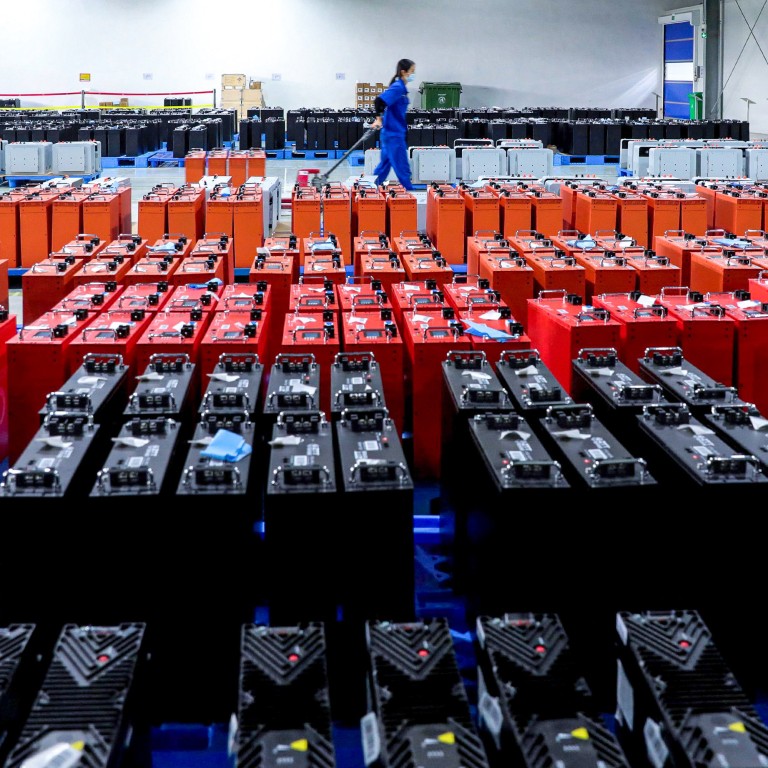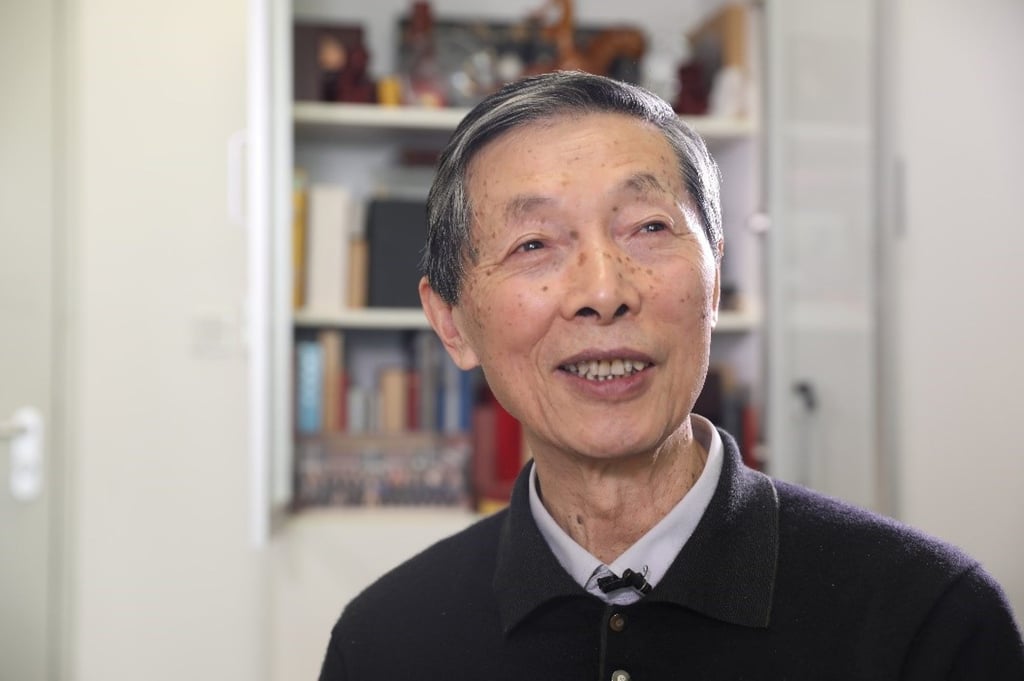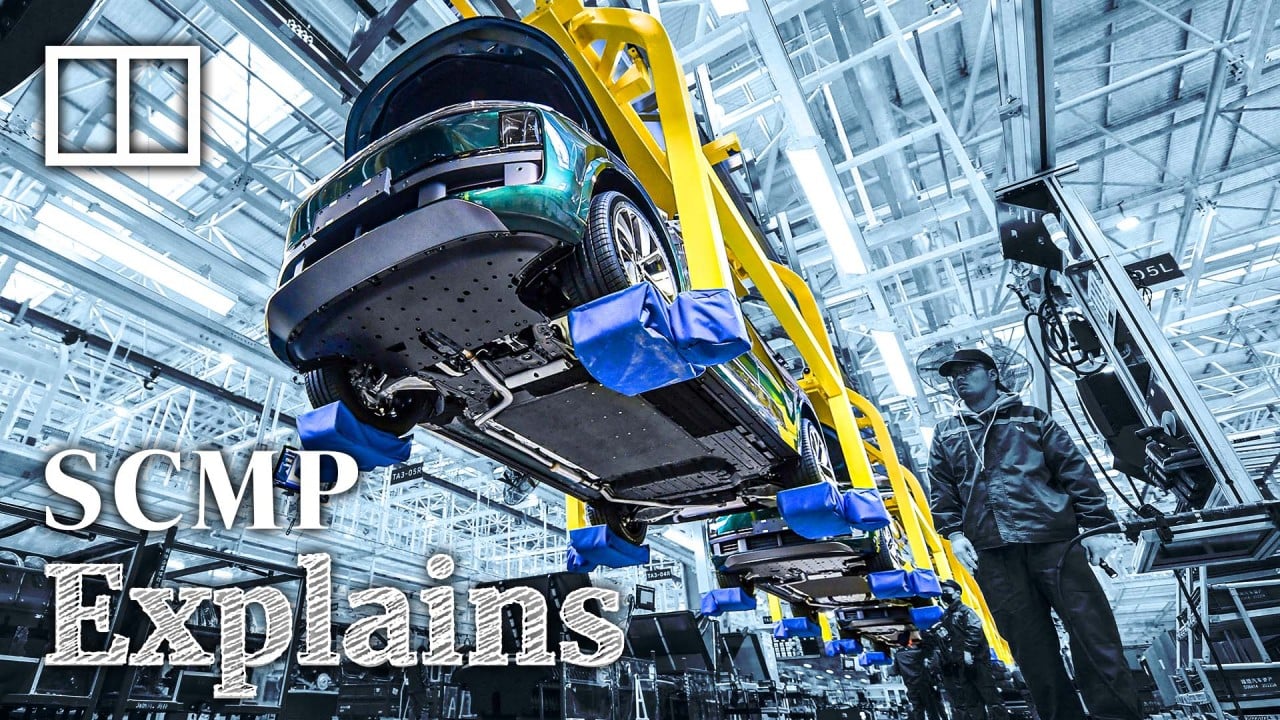
China scientists’ low-cost solid-state battery could be EV industry breakthrough
- New approach by USTC research team breaks cost barrier to next-generation rechargeable lithium batteries, according to paper
While there have been significant advances in traditional battery packs, their bulk, weight – and potential fire risk – are out of step with the requirements of lightweight, reliable EVs.
Replacing the liquid electrolytes of conventional lithium batteries with a solid-state alternative could promise faster charging times, better performance and improved safety standards.
But large-scale use of solid-state alternatives to conventional lithium batteries has been hampered by high material and manufacturing costs, sparking a global race for a commercially viable solution.
The researchers, from the University of Science and Technology of China (USTC) in the eastern province of Anhui, have developed a type of solid electrolyte that could hold great promise for commercial applications.
According to a paper published on June 30 by the German Chemical Society’s Angewandte Chemie, one of the world’s leading chemistry journals, the team took a new approach to a problem that has plagued researchers for more than a decade.
Major industry players, including Japan’s Toyota and South Korea’s Samsung, have invested substantially in research and development for a suitable solid-state electrolyte, with three main contenders – oxide, sulphide and chloride types.
Sulphide is generally considered the most promising candidate for the eventual practical application of all-solid-state batteries because of its excellent performance, but its high cost remains prohibitive.
In an interview with state-run newspaper Science and Technology Daily last week, USTC researcher Ma Cheng explained the root of the problem in terms of simple economics.

A commercially viable solid-state battery electrolyte must cost less than US$50 per kilogram to produce, but sulphide electrolytes are generally priced at more than US$195 per kilogram.
“Although researchers around the world are striving to reduce the cost through various methods, long-term exploration has shown that it is quite difficult to achieve this goal,” Ma said.
To overcome this challenge, Ma and his team set out to develop a new sulphide solid electrolyte, which they have called LPSO, that does not require lithium sulphide as a raw material.
LPSO is synthesised from two low-cost compounds, at an ingredient cost of just US$14.42 per kilogram – less than 8 per cent of the raw material costs of other sulphide solid electrolytes.
According to the researchers, the price reduction comes with no loss of the unique advantages offered by the best performing current forms of sulphide solid electrolytes, including acceptable anode compatibility, which determines performance stability.
LPSO matches well with high energy density anodes such as lithium metal and silicon, with a battery made from a combination of the new material and lithium metal maintaining more than 4,200 hours of stable cycling at room temperature, the paper said.
But Ma told Science and Technology Daily that LPSO “is still expected to achieve further improvements in performance, and we are working towards that”.
Companies from Japan, South Korea, Europe and the United States – which have lagged behind China in traditional lithium batteries – are pinning their hopes on next-generation battery technology, including solid-state batteries, to take the lead.
Both Toyota and Samsung are reported to be targeting 2027 for the commercial release of their all-solid-state batteries.
As other nations accelerate their efforts to achieve a commercially viable version of the technology, China’s battery and car makers have joined forces as part of a government-led drive to build a solid-state battery supply chain by 2030.
In January, Beijing launched the China All-Solid-State Battery Collaborative Innovation Platform, a consortium that brings together government, academia and industry, including EV battery giants CATL and BYD.
In May, Chen Liquan – “father of the Chinese lithium battery” – said the strategy aims to keep China in the race to develop what he described as “the future of rechargeable battery technology”.
“Only by seizing the first opportunity can China remain in a proactive position” in the development of solid-state lithium batteries, said Chen, 84, from the Chinese Academy of Sciences’ Institute of Physics, in an interview with China Science Daily.


